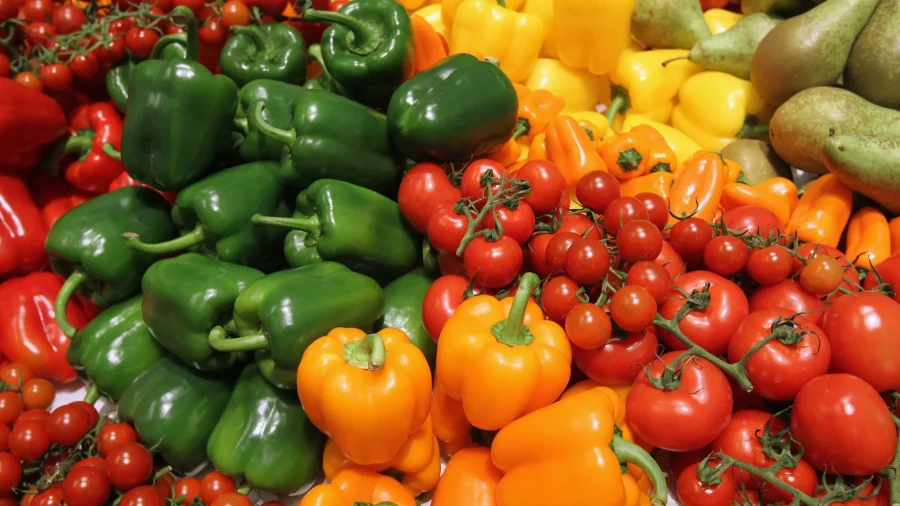Recalled Vegetables Slapped With Top FDA Risk Alert
The U.S. Food and Drug Administration (FDA) assigned its highest risk designation this week to tons of recalled vegetables distributed in Arizona and Nevada.
Concerns about Listeria monocytogenes led Salad and Go of Coppell, Texas, to issue the voluntary recall, according to a July 11 FDA alert.
Some 14 pounds of shredded red cabbage, 144 pounds of red diced onions, 128 pounds of sliced cucumbers, 542 pounds of chopped red bell pepper, 288 pounds of shredded carrots, 994 pounds of roasted brussel sprouts, 1,410 pounds of grape tomatoes, and 4,438 pounds of cooked breakfast potatoes are under recall.
“While Listeria contamination can happen in the field where vegetables grow, it is more commonly found in processing facilities where it can be resident and hard to eliminate,” Stop Foodborne Illness CEO Sandra Eskin told NTD. “The recalled products, except maybe the tomatoes, were chopped, diced, or shredded and then bagged–all of that happens in a facility.”
The FDA has designated the recall a Class 1 event.
A Class 1 event is the FDA’s highest risk alert and is described on the FDA website as having a reasonable probability that the use of or exposure will cause serious adverse health consequences or death.
A Class 2 recall is for products that might cause temporary or reversible health issues, but where the risk of serious harm is lower and Class 3 recalls involve products that violate regulations but are unlikely to cause health problems, such as minor labeling errors, according to Northeastern University professor, food safety expert, and Alliance for Recall Ready Communities adviser Darin Detwiler.
“It appears that the firm was being prudent and now has the hard work ahead of it in identifying the source and rectifying the lapses within its production,” Registrar Corp president and FDA compliance expert David Lennarz told NTD. “The lesson for growers and processors is to dedicate all possible resources to ensure that safe food is produced.”
Listeria monocytogenes is a disease-causing bacterium that can be found in many places, including soil, water, sewage, rotting vegetation, and animals, according to the FDA website.
“Consumers should always follow safe handling practices, which include thoroughly washing raw vegetables,” Eskin added. “However, if a vegetable has significant contamination (or the contamination is in the inside of the vegetable) washing won’t eliminate it.”
Salad and Go company leaders did not respond to requests for comment by press time.
Food recalls have been on the rise in recent years. A Trace One study found U.S. food recalls increased by 15 percent in the past five years.
The increase in recalls is a sign that the system is functioning as intended and is a testament to the FDA’s commitment to public safety, according to Lennarz.
“More retailers have begun to use more efficient and effective food safety recall software,” Lennarz added. “This software automates their ability to quickly announce and effect a recall. So, while it may seem like more recalls are happening, it’s equally likely that recalls are being more effectively communicated to retailers and, thus, to consumers.”


